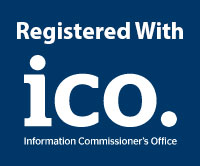
Sheth Jeebun said “I recognise the importance of sustainability in mitigating the impacts of over-consumption and carbon use. I am therefore committed to making all Aster Healthcare Homes completely paper-free by 2020
As an Operator of care to elderly people what has been your experience like?
It is not a job you do, driven by money but one driven by compassion and the ever-changing daily challenges.
Care homes have a minimum standard we wish to achieve with good being our minimal. This requires close monitoring of quality and compliance
How was it like in for your care homes during the pandemic as elderly people suffered more than any other group?
This has been one of the saddest and horrific events known to the elderly care industry to date.
The loss of any resident is a traumatic event for families however not being able to see or say goodbye to loved ones has made this even more horrific.
The increased number of loss and speed that this happened has not been fully recoverable.
Although death is a large part of what we do we aim for a good, dignified death with time to grieve for all. This was not able to happen which had a large impact on families and staff.
Staff felt unsafe in care services which was increased with negative media coverage and many of them had to choose between their own family and coming to work often creating a difficult situation to manage.
Now the pandemic appears to be coming to an end the local authority, social workers, CCGs and CQC are making appearances again. However, there has been no time for recovery and after a long period of time where we have been alone and managing the best we can (in some terrible situations) there is an expectation that we have remained exactly where we were when they stopped supporting us.
There needs to be a fazed recovery period supported by external agencies not condemning us further.
Please tell us if Pakistanis and Indians are also moving the elderly to care homes?
Yes, they are.
Why are care homes needed and what role are they playing in the public service?
Care homes strengthen the healthcare industry by providing specialized care to people who are not able to support themselves fully at home and do not have other support structures in place.
Care homes provide care that meets individuals’ needs and wellbeing. This can range from social activities, socialisation with other residents, 24-hours support from care staff, a safe place to live, good food, improve any ill health, improve quality of life and still be in a home environment.
Care homes reduce pressure on all other healthcare provisions.
What are the attitudes of Asian towards care homes in the country? And do you think this model needs to be adopted in South Asian and gulf countries?
Asians in UK are following the same pattern as the British as over time, attitudes have changed, furthermore there is less extended family in UK as opposed to Asian countries.
We should not adopt this model;however, it is undeniably theinevitable that will happen.
Tell us how did you get into this field?
When I came to UK, I did nurse training to be able to get my stay in UK hence the care industry followed suit.
What are the biggest challenges of care sector and what are the opportunities?
As well as the additional work introduced to care services due to the pandemic the ongoing and continued challenge has always been care funding and accountability.
Managing central government, CQC and organizational ideals whilst having limited financial access. Any business including care is only possible within the budgetary constraints. Within care this is often set by Central government and then passed on to a care provider to interpretate and set budget. However, within care, increased individual care needs (impacted by increased lifespan), increased government expectations, increased CQC governance, public awareness and general cost of living continues to go up however the monies needed to meet these increases is not available.
The expectation on the provision of care increases yet funds do not so how do we met this challenge?
In addition to increased expectation with reduced cost if mistakes are made there is a blame culture with no accountability being distributed fairly.
There are great opportunities, but it is a very hard, painful way to make money
There is a growing trend of British Asians joining this sector as a business model. What’s the reason for that?
Simply because Asians are very caring people. It is in our blood
What kind of services are provided to elderly in care homes and is this true that regulations are strict?
There are multiple kinds of elderly care service provision.
• Residential care
• Nursing care
• Dementia care
• Disability care
• Palliative care
• Home care
• Live in care
• Domiciliary care
• Supported living
• Day care
• Respite care
• Retirement villages
• You can have hybrid care packages tailored to your needs
Yes Regulations are simply too strict
As an Asian businessman, what has been your experience like and what will be your advice to others?
Advice to Asian businessman would be that you can still make a lot of money in business while at the same time keeping your basic values of helping people and give back to the community.
Visit our Social pages: Facebook, Twitter, Instagram, and LinkedIn.


